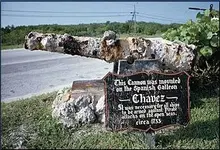LM
Hero Member
- #1
Thread Owner
In doing some reading, I'm having a hard time grasping the logic of archaeologists who support an in-situ philosophy for historic shipwrecks. Even though I may not agree with someone, I still like to try and decipher the logical framework they employ but in this case, I absolutely cannot figure out where they're coming from.
Is it the whole 'wrecks as grave sites' thing? I suppose one might be able to understand this for contemporary wrecks, but in the case of ancient historic wrecks, that concept doesn't hold up under much scrutiny relative to any number of other practices these same archaeologists regularly engage in to recover historical objects and artifacts.
Are the archaeologists who support in-situ for ancient wrecks similarly oriented for, say, underwater fossils? Are they 'better off' at the bottom of the ocean instead of in a museum or to a lesser extent, a collection?
Is it all just the bitter ruminations of collectivist-minded academics and government funded 'historians' who can't get over the private-sector drivers that pay for so much historic exploration? Like, in their perfect world, there would be state-funded public salvors combing the ocean in search of historic wrecks, but since that won't ever happen, they sit in an office somewhere and oppose the private interests who achieve the very same objectives?
What is the basis for these 'in-situ beliefs' ?
I realize asking this question here will probably yield a slanted answer, but a lot of you have been around this stuff forever and have heard the arguments they've made to support their position. I'd kinda like to know where they're coming from, since I totally cannot figure it out and the more books I read on historic salvage, the more convoluted their position appears.
Is it the whole 'wrecks as grave sites' thing? I suppose one might be able to understand this for contemporary wrecks, but in the case of ancient historic wrecks, that concept doesn't hold up under much scrutiny relative to any number of other practices these same archaeologists regularly engage in to recover historical objects and artifacts.
Are the archaeologists who support in-situ for ancient wrecks similarly oriented for, say, underwater fossils? Are they 'better off' at the bottom of the ocean instead of in a museum or to a lesser extent, a collection?
Is it all just the bitter ruminations of collectivist-minded academics and government funded 'historians' who can't get over the private-sector drivers that pay for so much historic exploration? Like, in their perfect world, there would be state-funded public salvors combing the ocean in search of historic wrecks, but since that won't ever happen, they sit in an office somewhere and oppose the private interests who achieve the very same objectives?
What is the basis for these 'in-situ beliefs' ?
I realize asking this question here will probably yield a slanted answer, but a lot of you have been around this stuff forever and have heard the arguments they've made to support their position. I'd kinda like to know where they're coming from, since I totally cannot figure it out and the more books I read on historic salvage, the more convoluted their position appears.





